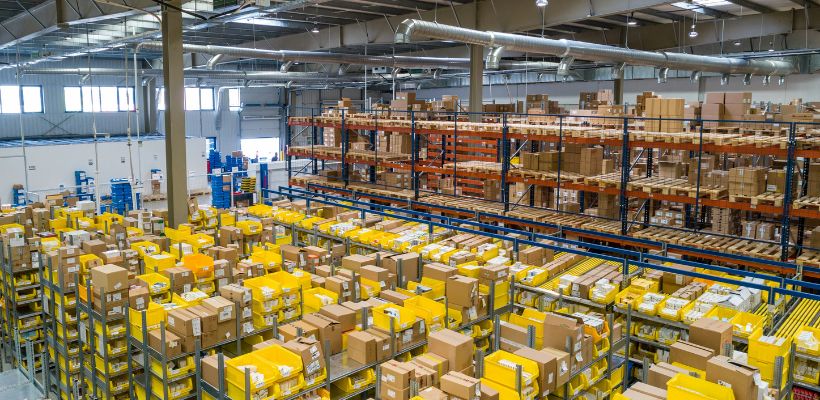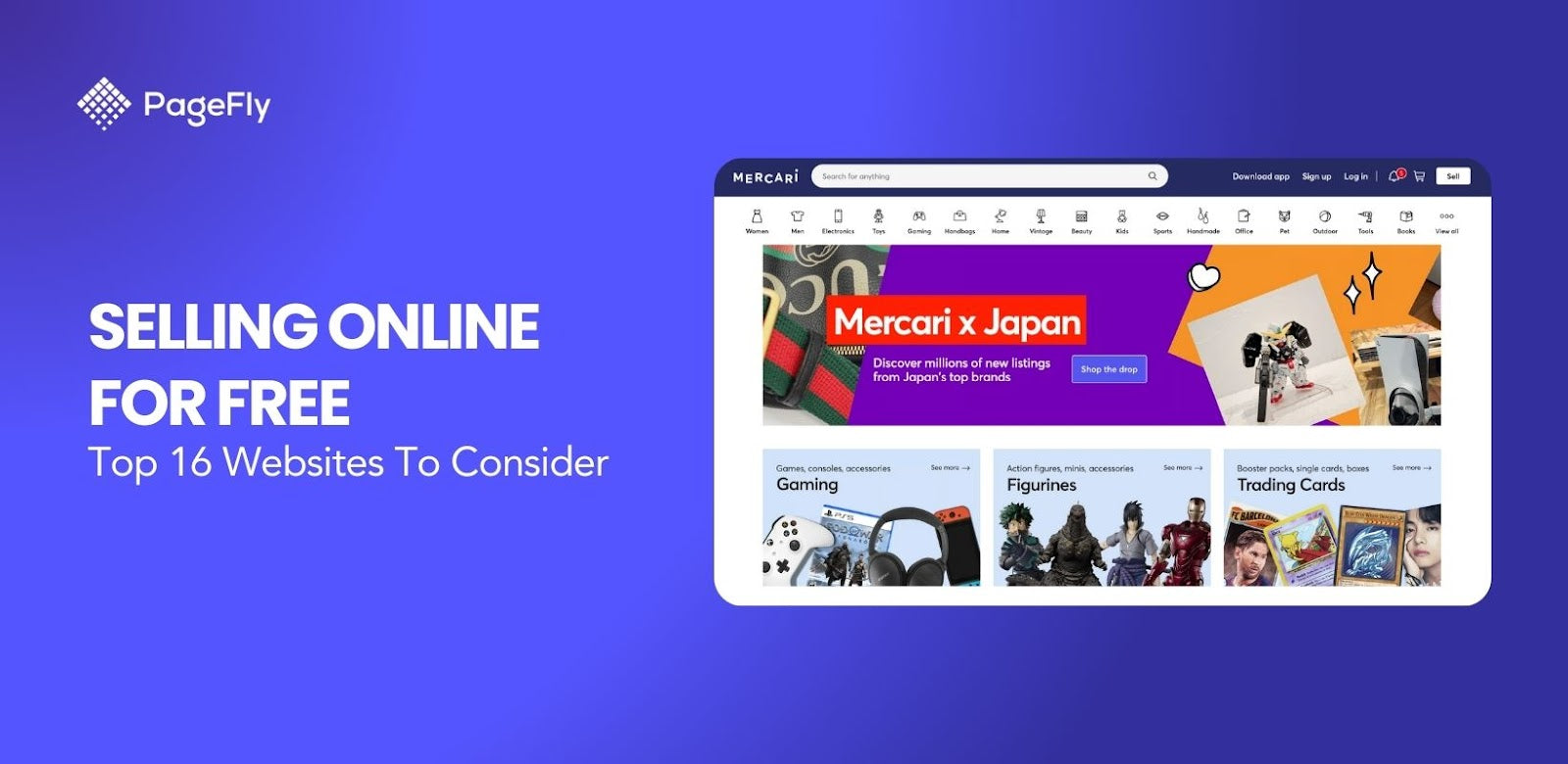The worldwide fourth-party logistics or 4PL market, valued at $57.77 billion in 2022, is expected to grow at a compound annual growth rate (CAGR) of 6.7% from 2023 to 2031, highlighting the critical role of advanced supply chain management for modern merchants
In this blog, we will help you learn about what is 4PL, how it works, its benefits, and its difference from the traditional third-party logistics (3PL) model.
Four Types of Logistics Providers
Let us round up the common types of logistics providers:
First-party logistics provider (1PL): Manages internal logistics from one company to another (B2B).
Second-party logistics provider (2PL): Controls network distribution transportation.
Third-party logistics provider (3PL): Manages inventory, order fulfillment, warehousing, and distribution for multiple customers, as well as managing multiple 3PLs.
Fourth-party logistics provider (4PL): The single point of contact for the entire supply chain lifecycle.
What is Fourth Party Logistics Model?
Fourth-party logistics model refers to a business operational model where manufactures its entire supply chain management and logistics to one external service provider.

Source: Navata
In this model, there is a 4PL service provider, which is also called the Lead Logistics Provider (LLP), which refers to a single service provider that monitors and handles all aspects of a customer's supply chain. The 4PL service providers also act as the single point of contact between the client and several other logistics service providers as well as carriers. They are known to have a significant role within the whole supply chain, including full responsibility and accountability in assisting their customers in their business goals.
What Does 4PL Mean and How Does it Work?
A 4PL provider specializes in the logistics area, delivering the needs of other organizations or businesses, providing a wide range of services from supply chain management up to warehousing and distribution. Summing it up, they mainly help businesses streamline their logistics operations and improve their service and regulation.
The global and local business competition is getting really tough, companies from various sectors are putting their focus on different strategies that will easily improve their sales and revenue. Thus, those companies utilize these service providers to seamlessly be in charge of all of their supply chain processes, which drives the demand for the 4PL logistics market.
In supply chain management, what does 4PL mean? 4PL providers are the partners of the merchants who assess, design, establish, run, control, and measure solutions for the client. They oversee the warehouses state, shipping companies, cargo, and agents. Manufacturers find and assign one outside supplier who will do all these tasks on their behalf. They collaborate strategically to develop and implement all supply chain solutions that are tailored to the demands of the client by combining their industry knowledge and expertise.
Examples of 4PL companies include Amazon, DHL, and UPS.
Amazon is one of the most well-known examples of 4PL due to being one of the world's largest e-commerce platforms. Amazon provides a complete 4PL solution that includes warehouse, transportation, and inventory management all under one roof.
Also, DHL Supply Chain, which is a global pioneer in 4PL services, provides end-to-end supply chain management and consultancy for a variety of sectors. Through its subsidiary, UPS Supply Chain Solutions, the company best known for its package delivery services has also entered the 4PL logistics industry and offers integrated supply chain solutions. We also have an article for more fulfillment services recommendation for your reference.
Benefits of Using 4PL
As logistics practices and methods continuously evolve and move away from in-house operations, this ultimately opens the door to high demand for excellent and independent logistics companies. These outside providers limitlessly offer improved, modern, and innovative options in order to meet their client’s growing operational needs.
There are different logistics models, and 4PL is just one of them. But, what are the main reasons businesses are moving into this? Aside from value-added services that remarkably impact a company’s operational efficiency, below are some of the common advantages companies experience with 4PL logistics:
Clear Data Visibility

Source: Unsplash
Through using more advanced software and data analysis tools, 4PL providers can accurately give you operational information that can help your business strive, even those small details that might be often overlooked when using other traditional models. This is a very critical part of an entire supply chain process, as even tiny delays can pause operations.
A 4PL supplier obtains a control tower perspective of operations using aggregate corporate data. It enables you to comprehend, and subsequently enhance, your operational model at an analytical level that would otherwise be challenging. A 4PL can utilize cutting-edge information technology systems, data analytics, and reporting tools to give end-to-end visibility and control over the supply chain. It gives the customer the ability to keep tabs on progress, monitor risks and opportunities, and make wise decisions for their long-term and short-term goals.
Operational Efficiencies

Source: Unsplash
Operational efficiency refers to an organization or business's capacity to minimize waste in terms of time, effort, and materials while still delivering high-quality services or goods. Operational efficiency is measured in terms of the ratio between the input needed to maintain an organization's operations and the output it actually produces.
A 4PL service allows you to access automated tracking and order placement while also improving production schedules and requirements for raw materials. Through the help of 4PL, you can concentrate more on your business's competencies rather than allocating all your time to using resources to manage inventory and supplier relationships.
Cost Savings

Source: Unsplash
A 4PL can totally lower the client's cost of ownership by negotiating better terms with other service providers, optimizing inventory and transportation, and putting best practices into actual practice. Merchants can lower overhead and labor, lessen inventory challenges, remove wasteful processes, and improve purchasing leverage from an expanded supplier base through the help of 4PL services. All these lead to leaner operations and well-processed cash flow, resulting in more opportunities for company investment and growth.
Improved Customer Connection

Source: Unsplash
Customers' and retailers' interactions are continuously changing, as is the supply chain management process. As you will notice, consumer habits have changed as a result of online options, compared to when traditional shopping was the main thing. Now, customers are spending less time in person with retailers and relying more heavily on online interfaces for customer service and inquiries.
Though some may see online communications as a negative way of strengthening the customer-company dynamic, 4PL providers can still highly improve customer relations for their business-to-consumer or B2C clients by keeping customers in close contact with their purchases. When 4PLs fully take on a client's logistics needs, they also take on their customers' needs. As a result, those ultimately qualified 4PL providers prioritize customer engagement by keeping customers updated on their purchase from the moment they click the buy option until it arrives in their location.
Corporate Growth

Source: Unsplash
Most companies' primary goal is to grow and expand. Reaching wide and various target markets means more visibility and high revenue. Well, 4PL providers can help make that vision a reality with minimal disruption to daily operations. 4PLs have enough access and relationships in the supply chain industry that allow them to easily assist businesses during periods or stages of growth and expansion.
The 4PLs stand as supply chain architects who establish dependable networks to support the logistical needs of a developing company. They have strong ties to national and international partners which can broaden the scope of any business' operation.
What is the Difference Between 3PL and 4PL?
Third-party logistics or 3PL provides outsourced logistics services, which include management of one or more aspects of procurement and fulfillment activities. In the enterprise scope, 3PL refers to any service contract that involves storing or shipping items.
Quick read: Ultimate Guide on Third-Party Logistics (3PL) E-Commerce Fulfillment Solutions to Scale Your Business
Meanwhile, as we mentioned above, the 4PL provider handles all aspects of the supply chain, including IT, procurement, and finance aside from physical logistics. A 4PL may delegate physical goods management to one or more 3PLs.
Here are the main distinctions between a 3PL and a 4PL:
Differences | 3PL | 4PL |
Concentration | A 3PL only handles certain aspects of the supply chain | A 4PL works to optimize your entire supply chain. A 4PL takes over the entire operation, giving businesses more time to grow and expand their business |
Relationship | The way you as a merchant interact with a 3PL provider is seen as transactional, which means the relationship is often fueled by lane costs rather than strategic considerations. | A 4PL provider relationship, on the other hand, will be focused on long-term strategy or the bigger picture you want to see. A 4PL provider will most likely assist you in organizing, leading, designing, and coordinating your supply chain network. |
Asset | When it comes to assets, 3PL providers frequently own many or all of the assets required to sufficiently run your supply chain, including trucks, distribution centers, and package warehouses. | 4PLs are non-asset based—they may have their own IT systems and intellectual capital but they primarily provide logistics expertise. They also focus on finding the most cost-effective suppliers and vendors for your company. |
Costs | Most 3PLs have a large number of industry collaborators and connections to resources, such as shared warehousing, which can really help lower logistics costs and increase efficiency. | 4PL is more concerned with lowering the overall operational costs of your supply chain while improving the company's performance. A 4PL provider can help you save money by bundling services like manufacturing, reverse logistics, and procurement practice optimization. |
Businesses must evaluate their existing supply chain network and strategy, available budget and resources, business needs and main priorities, as well as long-term and short-term expectations from the required solution before finally choosing between 3PL and 4PL to optimize logistics process and supply chain operations. Here is a video, for additional reference, explaining the difference of 3PL and 4PL.
Evaluating If Your Business Needs 4PL
The upfront costs and data exchange involved in partnering with a 4PL provider are significant, which is why it is best to think carefully before making a decision. To determine whether your company requires a 4PL partner, consider the following questions.
Are your supply chain costs uncontrollable?
We can somehow say that managing costs aligned with 3PL partners to ensure cost savings is quite simple in the early stages of business. However, as the company continuously grows, it becomes more difficult to manage sourcing and negotiation. It gradually deteriorates to the point where margins suffer and expansion slows. Creating economic profit within logistics functions may prove to be a more challenging task than it was previously.
If your company is already at or somewhat nearing that point, you should think about outsourcing your supply chain to a 4PL partner. Their capacity and power to provide agility in resource allocation can manage supply chain operations.
Is it becoming difficult to manage your network of 3PL vendors?
As with supply chain expenses, growing businesses collaborate with an increasing number of 3PL partners. Handling each with their own processes can be time-consuming causing you to detract from the core activities of your business, which need more attention. Utilizing a 4PL partner will provide you with a single point of contact and accountability, while also standardizing processes. In this way, you don't need to extend your hands to connect with 3PL and make things harmonious, especially if you have so many lists on your plate — 4PL understands the hassle of that, which is why they made everything manageable on your end.
Is your company planning to serve customers all over the world?
We understand that in order to pull your business to the next level, you have to intensely work hard and connect with different sectors. Customs, taxes, international regulations, and other factors can make establishing and managing international supply chains difficult. With their background, experience, and expertise, 4PL partners can help you manage a complex global supply chain while allowing your company to grow quickly.
Before transitioning to 4PL, note whether you also need them based on their purposes, functions and suitability listed below.
- In general, medium-sized to large businesses are better suited for 4PL.
- 4PL firms work at the optimisation and collaboration levels.
- 4PL companies offer a high level of logistics services.
- 4PL providers enable businesses to focus on their product rather than the complexities of their supply chain.
Examples of 4PL Providers
DHL Supply Chain
In order to "extend efficiency, flexibility, and cost benefits to the entire end-to-end supply chain," DHL Supply Chain offers something referred to as "Integrated Solutions." They brings together services such as transportation, warehousing, and management.
DB Schenker
DB Schenker offers freight management, transport management, and supply chain solutions. Their mission is to provide value-added services that allows you to stay "competitive and your supply chain lean." They are focused in integrated logistics and global trade – serving various industries with "innovative and sustainable solutions."
CH Robinson Worldwide
TMC, a division of CH Robinson Worldwide, serves as the 4PL. The solution uses a single platform called Navisphere to connect networks, automate routing instructions, and tender freight. TMC oversees carriers, lowers exceptions, and boosts productivity.
Conclusion
In conclusion, a dependable 4PL partner can exceptionally improve your logistics process and supply chain performance. Outsourcing supply chain operations to 4PL companies can influence large-scale and rapidly expanding businesses in particular, as they provide a re-constructed and insightful strategic approach that will surely position your operations on a level that is manageable and can be easily put into operation. The 4PL providers lessen merchants' tasks so they can put more focus on their other business aspects that need their immediate attention. 4PLs do this by providing a single point of contact and accountability.
There are numerous compelling reasons to adopt a 4PL business model. It extraordinarily includes limitless new opportunities or chances to attract new customers, meet their diverse needs, and make a name for yourself in the emerging 4PL market with the right support, technologies, and expertise in the industry.









![14 Profitable Small Food Business Ideas for 2025 [Real Numbers]](http://pagefly.io/cdn/shop/articles/1_58b587d2-13db-4aa6-8c19-e40f5c88d3eb.jpg?v=1758255771&width=4460)
![Art Business Names: 350+ Ideas + Free Generator [2025 Updated]](http://pagefly.io/cdn/shop/articles/art_business_name_e94a54e9-d325-4ba3-94ab-7b4297952312.png?v=1760062968&width=1640)







